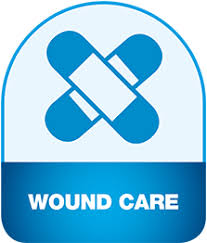
Michel Laurence
Hospital Saint-Louis
Title: Study of the molecular and functional effects of wound dressings on human dermal fibroblasts
Biography
Biography: Michel Laurence
Abstract
The process of cutaneous healing/repair is characterized by three major phases, closely related: Coagulation (A) and inflammation (B) during the first hours involving immune cells of the innate response, followed over time by a regeneration phase and a remodeling/maturation phase (C) mainly conducted by dermal fibroblasts. To promote tissue repair, there is a multitude of dressings targeting the different phases of healing including calcium alginates and high absorbency fibers. The aim of the present study was to determine the effects of these wound dressings subtypes on human dermal fibroblasts, knowing that some of them do act on the coagulation and hemostasis phase as well as on the wound debridement Primary cultures of dermal fibroblasts were established from human surgical normal skin residues (n=6 to 12) and were studied for their molecular and functional responses to conditioned media from three wound dressings: Calcium alginate Algosteril®, Biatain® Alginate and UrgoClean®. The results showed that Algosteril® dressing among the 3 dressings significantly promoted the cell migration and consequently the closure of the dermal wounds as demonstrated by scratching experiments. No alteration of the viability of dermal fibroblasts was depicted with Algosteril® and Biatain® Alginate, whereas UrgoClean® did. Concerning gene macro-arrays induced in TGFβ-activated fibroblasts, Algosteril® significantly increased the synthesis of main collagens, extracellular matrix-remodeling enzymes, cytokines promoting fibroblast migration and proliferation, as well as allowing the recruitment of immune cells and thus promoting the development of an innate response that ensures the debridement of the wound. Biatain® Alginate was less efficient than Algosteril® Stimulation of pro-inflammatory cytokine production was also significantly increased with Algosteril® whereas it was not with other studied dressings. Altogether, our results about these different parameters pointed out that Algosteril® among other dressings will facilitate the repair of the tissue matrix and prepare an effective healing phase

